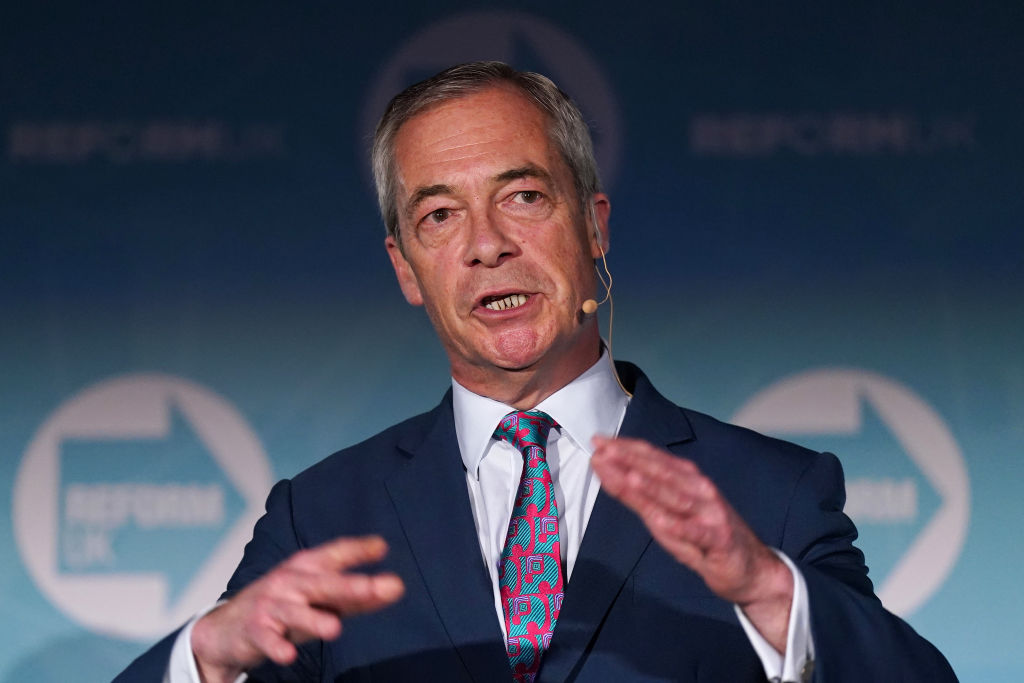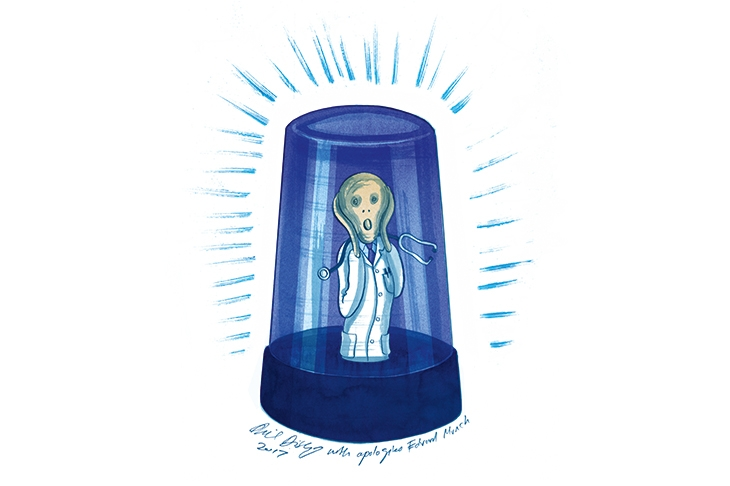Nigel Farage has really done it this time. He may have sailed close to the wind before, but defending the gender pay gap? Telling a group of journalists yesterday that there’s a reason more men have top jobs in business than women? Surely, he won’t get away with that.
As you’d expect he’s been roundly condemned. Natalie Fleet, Labour MP for Bolsover, snapped that Farage ‘seems to be stuck in the 1970s’ and ‘has no idea about the sacrifices women make’. On X, Farage was compared to a ‘dinosaur’ and his assertions, among other things, were described as hateful, wild, horrible and gormless.
Well, it certainly was brave of Farage to delve into the pay gap issue, where men can get paid more than women. And it’s courageous to take on the mighty DEI lobby. But before we castigate him too hastily, it’s worth studying exactly how he replied when asked if men in top jobs are all there on merit: ‘Men are prepared to sacrifice their family lives’, Farage said, ‘in order to pursue a career and be successful in a way that fewer women are.’
Note what he did not say. He did not say that few or no women make a sacrifice. He said ‘fewer’. And he did not talk about any sacrifice, but merely the sacrifice to pursue a career.
I know several women who are the main breadwinner in their family, usually supported by a partner who prioritises home life. But it’s also true that, like Farage, I know more households where a man is the main earner. That may not be the case in the decades to come, but it is now.
This could of course be because women feel pressured into prioritising family, and I’d be interested to hear what Farage thinks about that. As far as I know, nobody asked him. But a survey from Harvard Business School, conducted by three female academics, looked into that very issue a few years ago and made the provocative finding that women are ‘less likely than men to focus on power’, perceive power as ‘less desirable’, anticipate ‘more negative outcomes from a high-power position’ and, as Farage suggested, are less likely ‘to jump at opportunities for advancement.’ In short, the research concluded, ‘men want power more than women do.’
We may or may not accept these findings, but, in any case, I’m not sure that wanting power is a good thing. Raw ambition can be thoroughly unpleasant. So, this research can hardly be called pro-men. But it does point to differences in attitude. Should that be controversial? It might go some way to explaining why men, here in the UK, are still the main breadwinners in well over half of all households, though the gap is narrowing.
For many years defending men has been a risky business and even thoroughly unacceptable, which is why it happens so rarely. Here’s a simple test. When I put the search term ‘men are better than women’ into Google, I get a series of back-handed compliments, including this from the BBC: ‘The unpleasant reason men navigate better than women’.
But search ‘women are better than men’ and you’ll get thousands of results showing how women are superior in everything from working under pressure, taking financial responsibility, teaching, managing people, caring, driving, showing stamina, raising money, and being surgeons, doctors and engineers. You’d think that being a chap marks you out as a loser for life.
That’s probably why I got nowhere when, a quarter of a century ago, I was part of an organisation called ManKind that aimed to defend the rights of men and boys in such fields as health, education and the family law courts. Nobody wanted to listen, least of all men themselves. Frequently, we were written off as weird. Our attempts, for example, to show how victims of domestic violence can be male (a simple fact) hit a brick wall, with one Evening Standard journalist bluntly telling me: ‘Women never commit domestic violence.’ That told me.
I like to think we were just ahead of our time. After all, a quarter of a century on, we have a crisis of masculinity, we’re alarmed about the chances of young white men from disadvantaged backgrounds, and we panic at the influence of Andrew Tate. We even have a horrifying drama, Adolescence, which is so vivid that Keir Starmer accidentally referred to it as a documentary.
So, isn’t it about time we started praising men? Just sometimes? Can’t we occasionally say something positive about them? I think we should. Even if it comes from Nigel Farage.







Comments